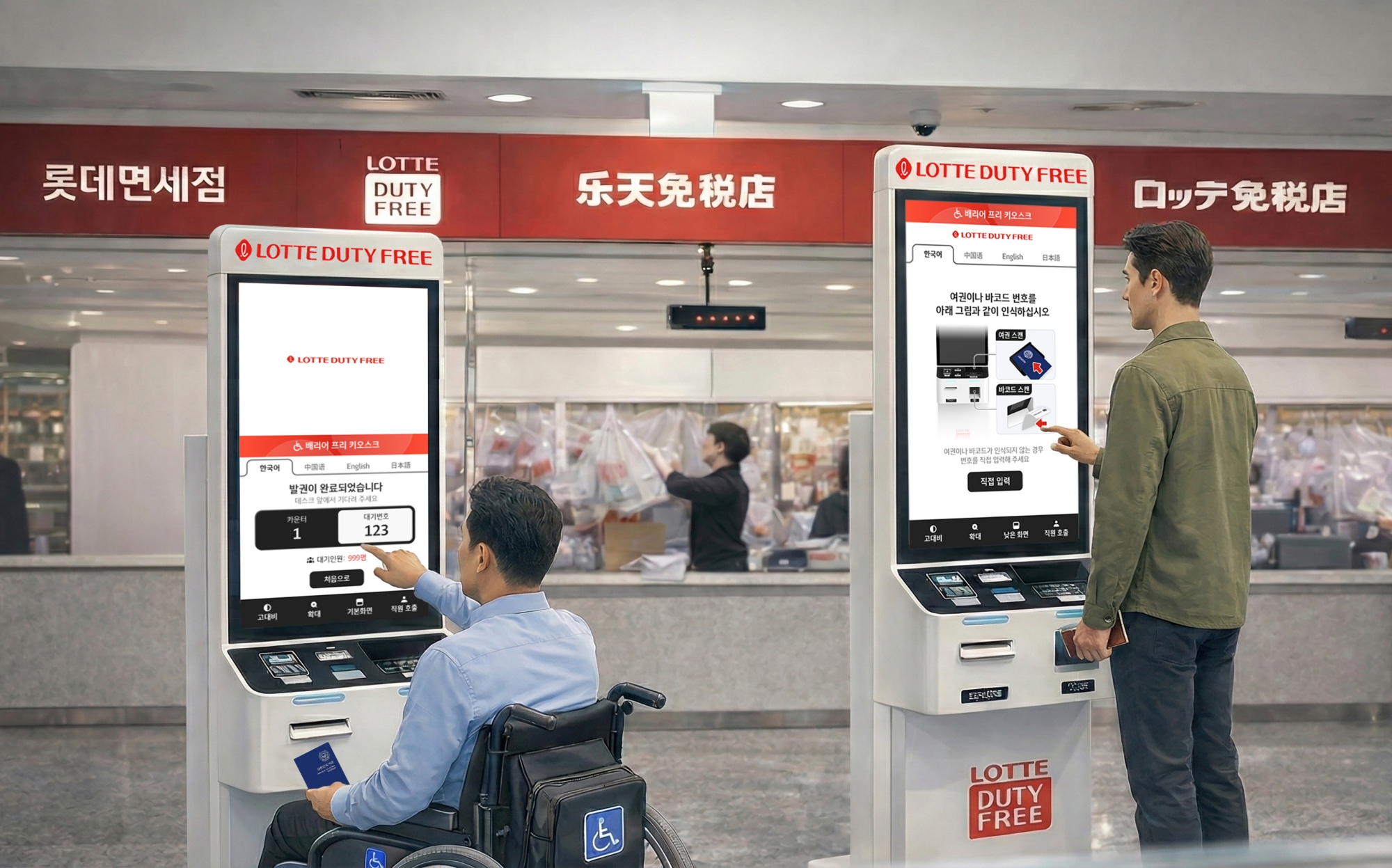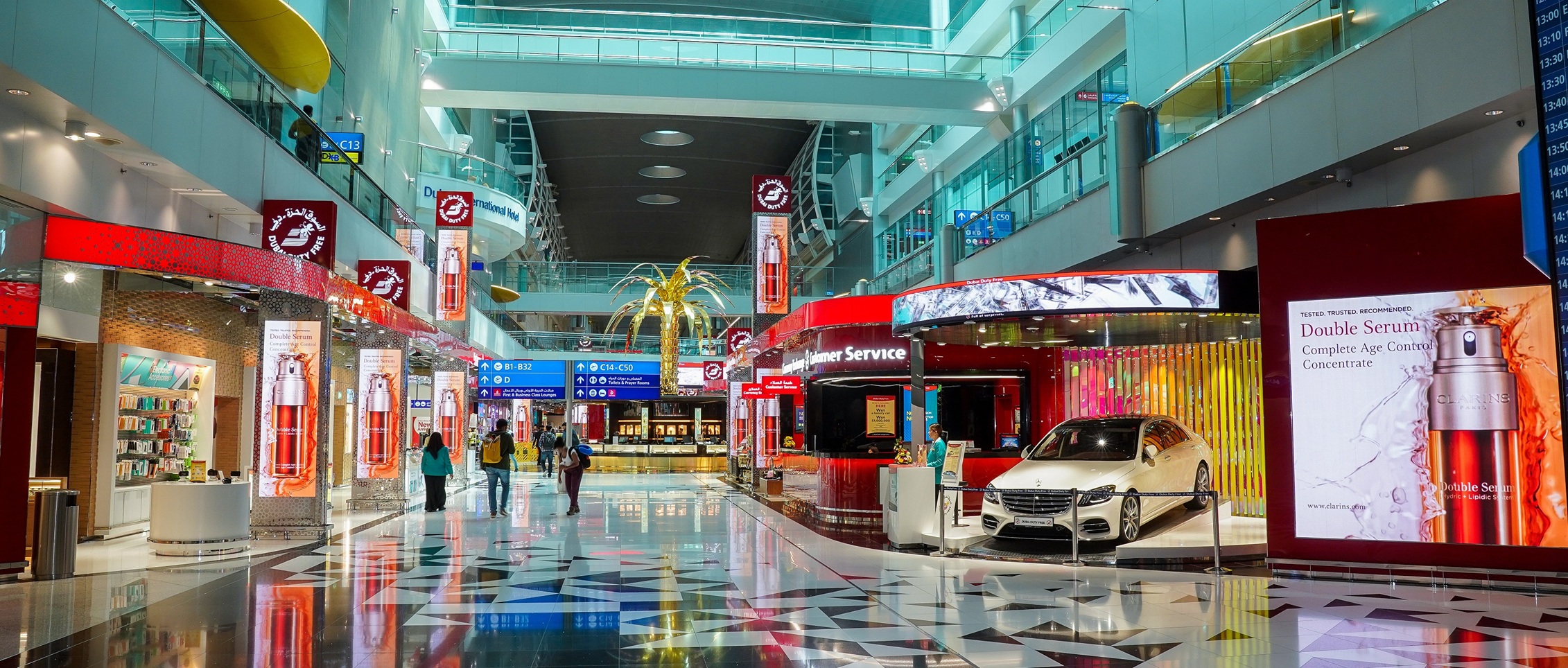November 11, 2025
Al Waha CEO Jack MacGowan presents the company’s vision for Saudi travel retail
Saudi Arabia’s new duty free operator Al Waha brings Vision 2030 to life through customer experience and a strong sense of Saudi identity
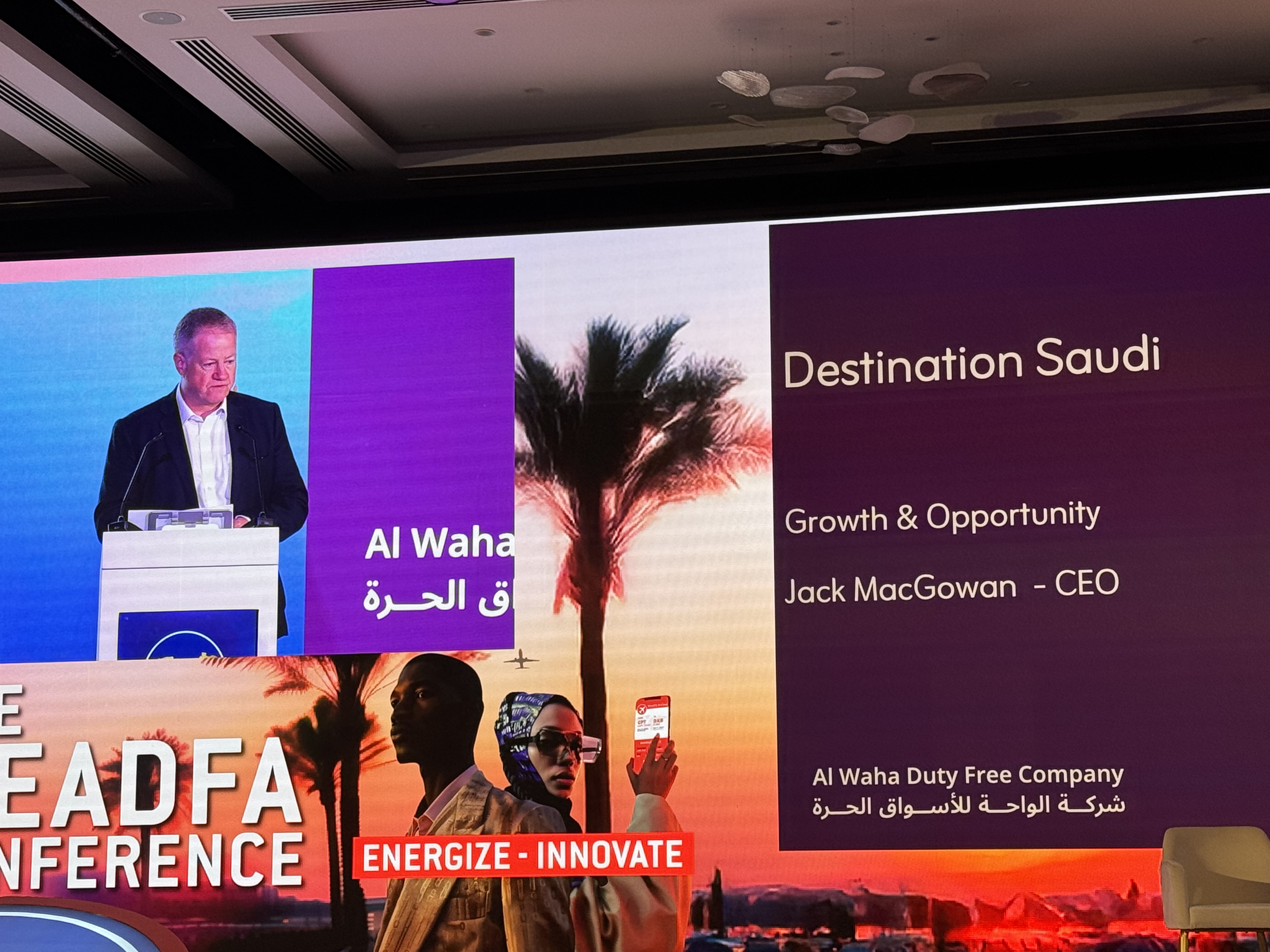
Saudi Arabia’s travel industry is expanding at extraordinary speed. New airports, mega-resorts, cruise terminals and border crossings are taking shape across the country as Vision 2030 turns long-term plans into reality. Within that surge of growth, Al Waha – the Public Investment Fund’s new national duty free company – has been created to redefine how travelers experience the Kingdom from the moment they arrive to the moment they leave.
At the MEADFA Conference in Dubai, Al Waha CEO Jack MacGowan described a business built to match Saudi Arabia’s pace. The company, he said, was founded to embody the ambition and optimism that now define the country’s development.
“The Public Investment Fund (PIF) set up Al Waha to compete and win business and transform the airport experience,” he said. “They want the first and last impression of Saudi Arabia to be a good one. They want to send tourists and visitors home as champions, talking to their friends and family about how good the trip was, what they experienced, how surprising it was.”

Vision 2030 is the foundation for that approach. “We’ll be different because we are so closely aligned with the customer service goals of Vision 2030,” he said. “How we compete is not going to be on price – it will be on service.”
Rapid growth
MacGowan spoke of the country’s pace of change with visible admiration. “There’s an energy in the country that’s extraordinary,” he said. “You can feel it everywhere – in the airports, in the cities, in the projects. The country is changing at an incredible pace and the scale of what’s being built is astonishing.”
He pointed to tourism, infrastructure and retail all expanding in tandem. “In North Riyadh alone, around the airport, they’re going to have to build 40 new hotels to satisfy demand in the next four years. It’s an enormous opportunity.”
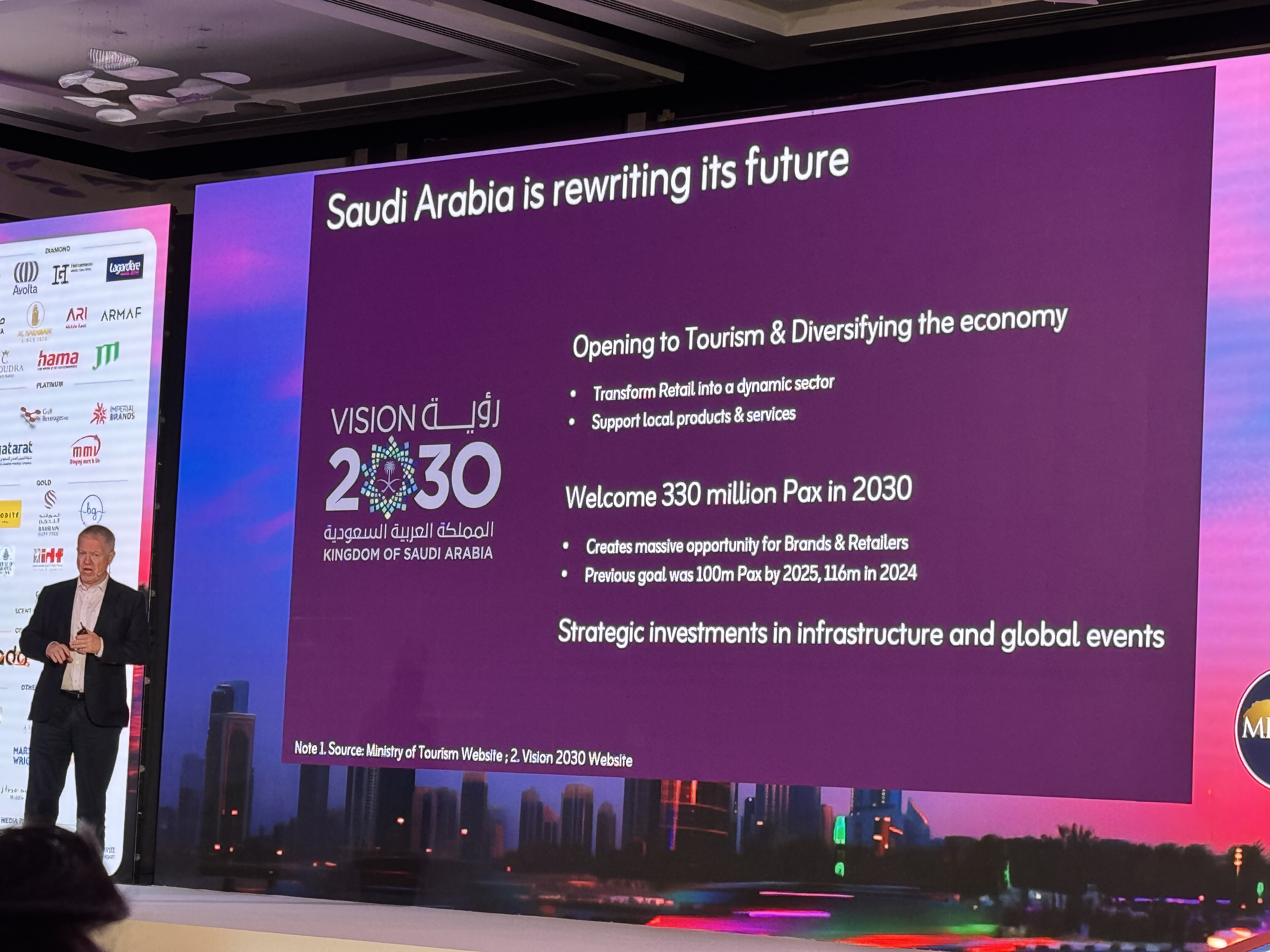
The speed of growth, he said, demands that companies operate with the same momentum. “We have to match that energy. This is not a place where you can move slowly. You have to be here, you have to listen, and you have to build for the future that’s already arriving.”
Younger consumer
That local insight defines the company’s understanding of its core customer. “The Saudi Arabian passenger is young,” he said. “Nationally, they’re six years younger than the global population. These young, relatively affluent passengers in Riyadh Airport, they love brands.”
This generation also values connection as much as product. “The experience in the store is probably as important, if not more important, than the promotions or the price,” he said. “They’ll buy 30% more if they engage with staff and the staff know. If we mind your brand well and we present it well, they’re going to buy it.”
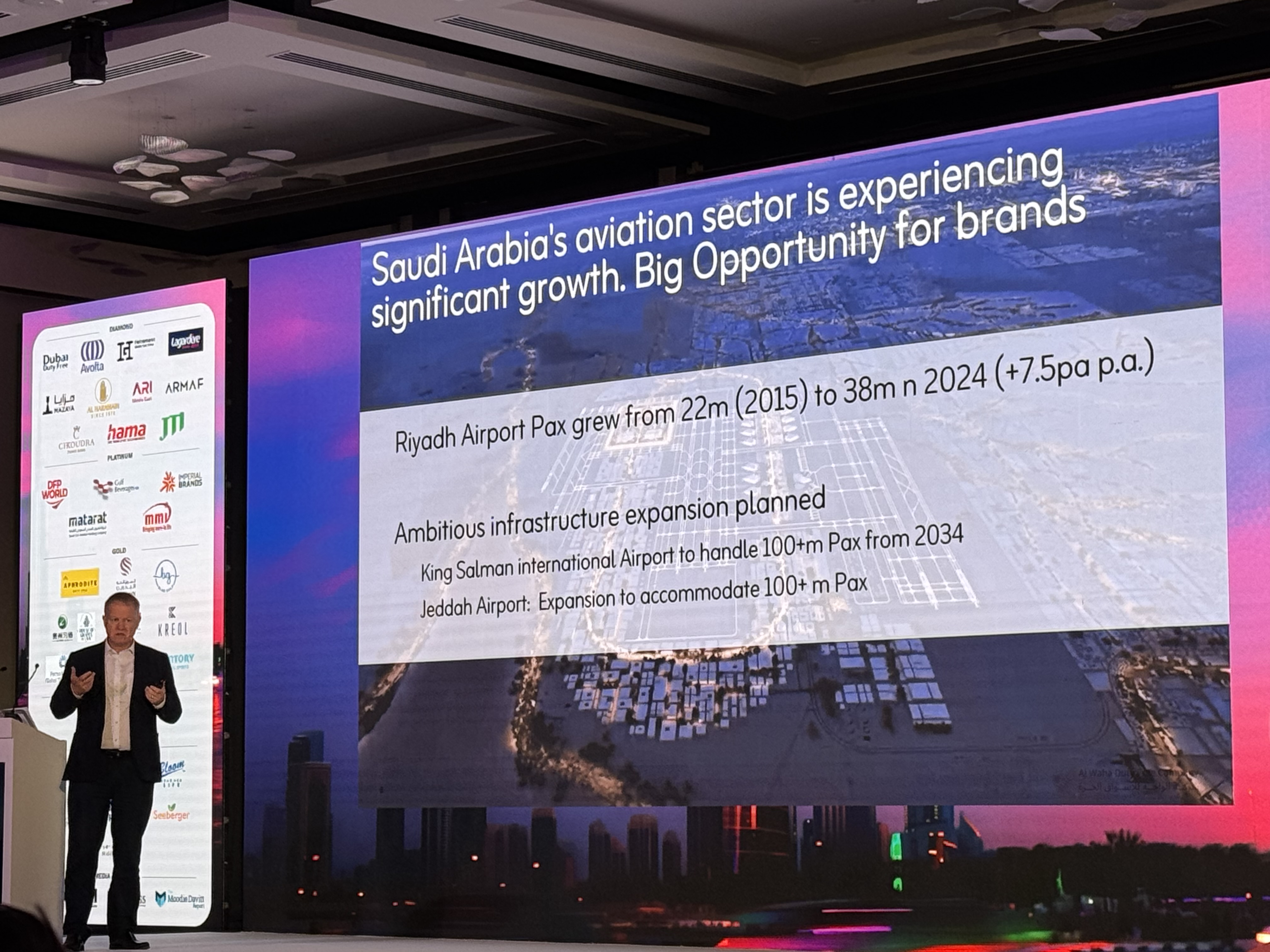
Growing team
The company’s start-up story mirrors the scale and urgency of the market it serves.“When we started off in June 24, Ian Foster and myself, ‘dumb and dumber,’ we had no office,” he said. “We moved and hired two more – John Reynolds and Naif al-Watban – and we became the fantastic four in our own minds.” That small founding team has since grown rapidly. “Today we’re 53 people in our support office. There’s actually coffee meeting rooms and it looks and feels like a professional place, but we’ve still got that entrepreneurial culture that we want to keep.”
That culture, he said, is what keeps the company agile in a fast-moving market.“Every day in Riyadh you can see something new being built,” he said. “The projects are huge – airports, resorts, malls, entire new cities – and we’re part of that story. We have to move at the same speed.”
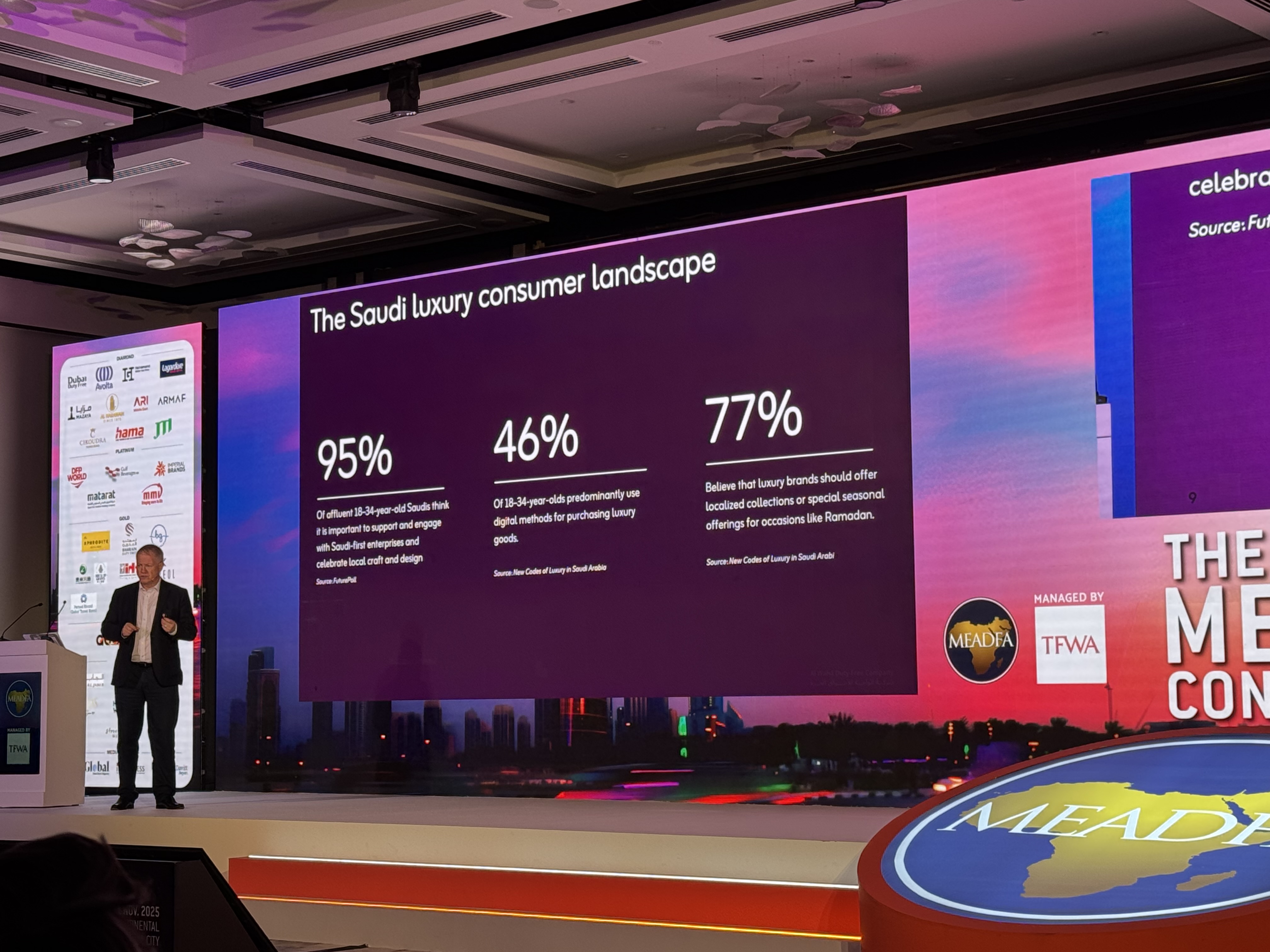
Talent development sits at the heart of that vision. “We’re going to create an elite female Saudi sales force,” he said. “Going from where we are today will require significant amount of investment and we’re behind that. We have to create a retail career for people to show them that if they emerge and become a good salesperson, become a supervisor, they can go on and do some training and have a fantastic career.”
Al Waha’s philosophy centers on clarity and care. “We want the consumer that walks into our shop to say it’s easy to shop in this shop,” he said. “The staff are really good, they’re helpful, and they care.”
Pricing, he added, is designed to remove doubt. “We want to take price away from the customer so that they can make a decision based on non-price,” he said. “We check prices so you don’t have to.”
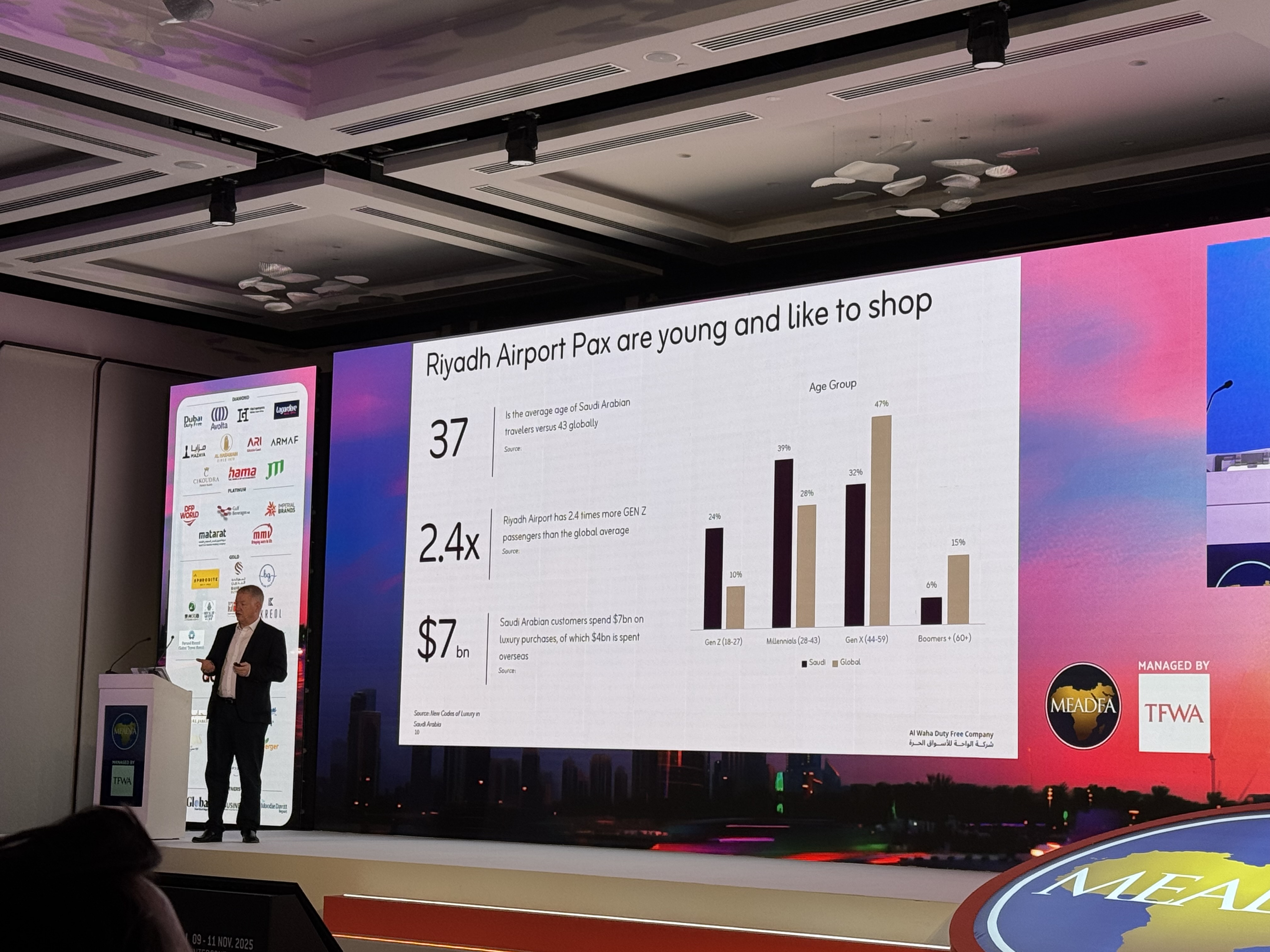
Truly Saudi
He urged global brands to adapt to local audiences. “If you’ve got an internationally global famous brand, how do we make it relevant to a Riyadh customer?” he asked. “Should you be trying to adapt or change in some way to make it more relevant to our consumers?”
Saudi identity, he said, should come through in every touchpoint. “We have some interesting concepts in terms of Saudi heritage,” he said. “We have some interesting ways in which we might be able to show that there is a different way of retailing in Riyadh.”
Al Waha’s growth strategy extends well beyond airports. “On top of the 27 airports in Saudi Arabia, we’ve got resorts like Red Sea, Shura Island … The definition of Al Waha’s scope is all tourist touchpoints. If they’re in Riyadh, we should be there. If they're at resorts, we should be there. If they’re on a cruise, we should be there. If they cross the border, we should be there.”
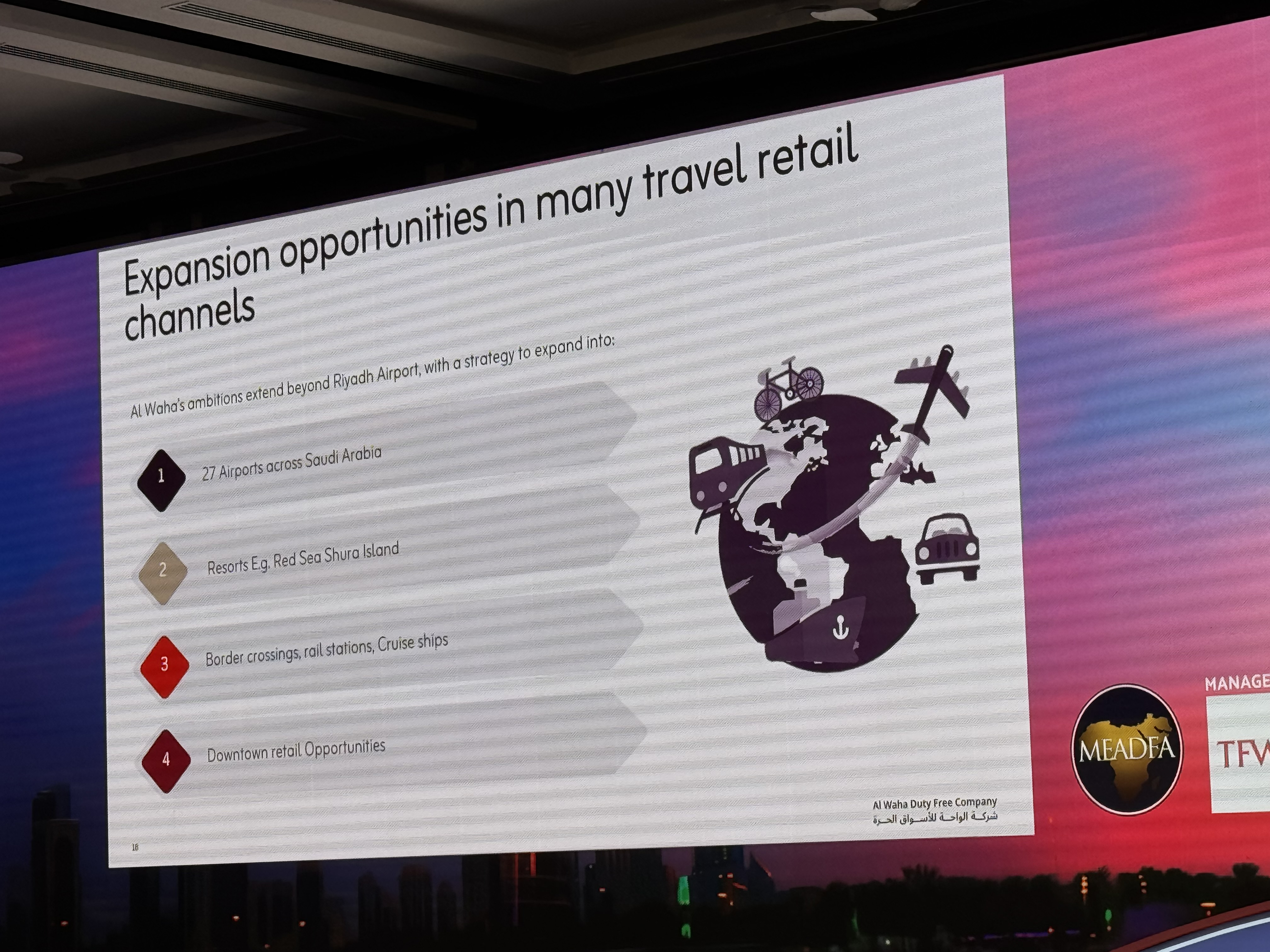
He confirmed that the company is also planning downtown duty free stores to capture the leisure traveler experience. “We want to be part of the everyday experience of travelers, not just at the airport,” he said. “Downtown stores will allow visitors to shop as part of their trip rather than as an afterthought.”
The expansion reflects the scale of Saudi Arabia’s travel boom, with major projects under way to welcome millions of new visitors each year. “Tourism is exploding,” he said. “From Neom to Diriyah to the Red Sea, everything connects to travel, and that means opportunity for retail, hospitality and culture. We’re lucky to be part of it at this stage.”
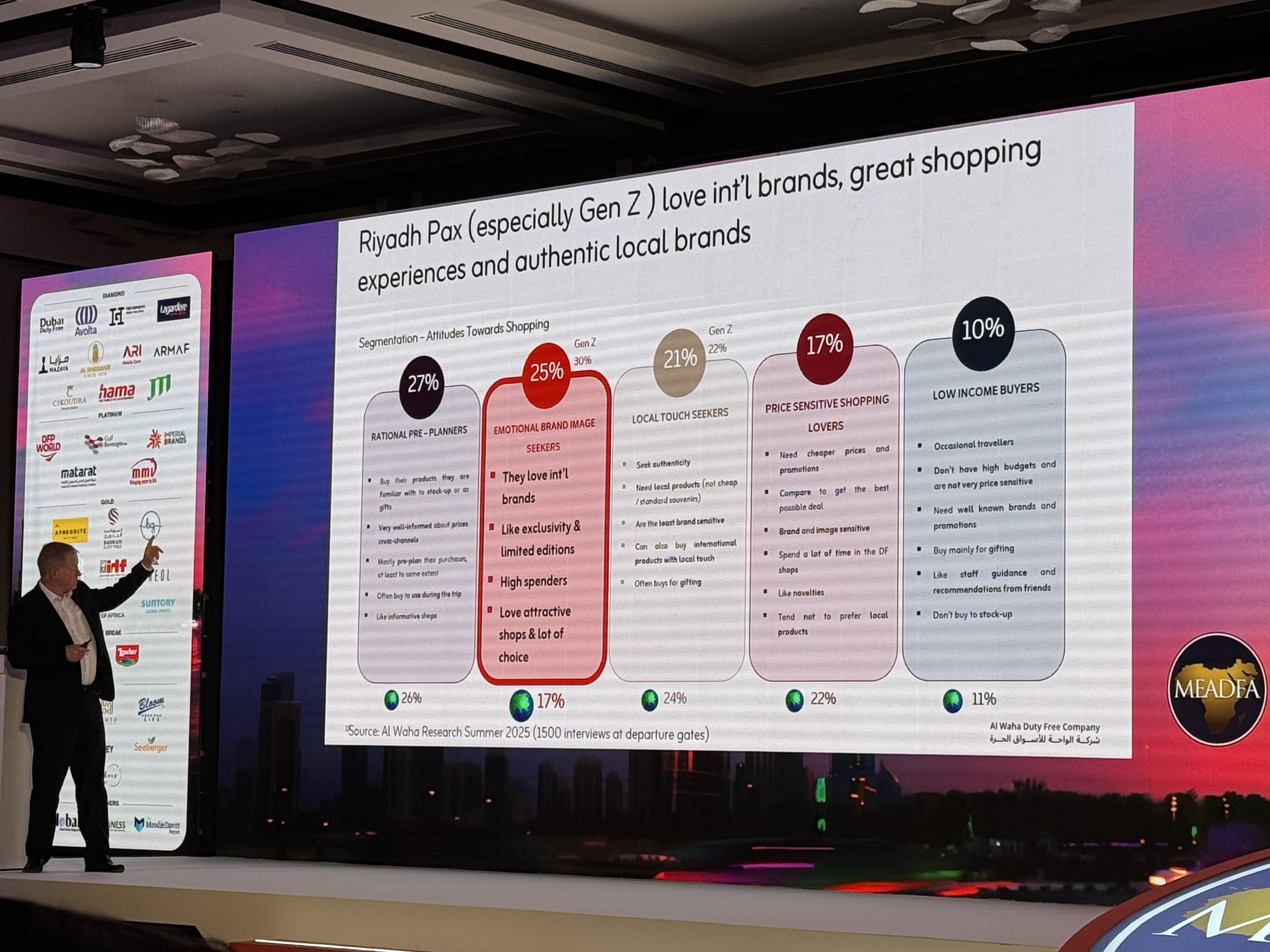
Part of the energy
He said progress will depend on collective effort. “We need the airports and the airlines ourselves and the brands to work much closer together to deliver that data,” he said. “If we can do that, that channel becomes number one challenge for our programs in the future. We have to become more relevant, and if we don’t, we’re in trouble.”
For MacGowan, the company’s growth mirrors the country’s own momentum. “The energy is contagious,” he said. “Everyone is building something new, and we’re part of that. The goal is to make sure that every traveler who comes through Saudi Arabia feels it too – that sense that something big is happening, and they’re part of it.”



